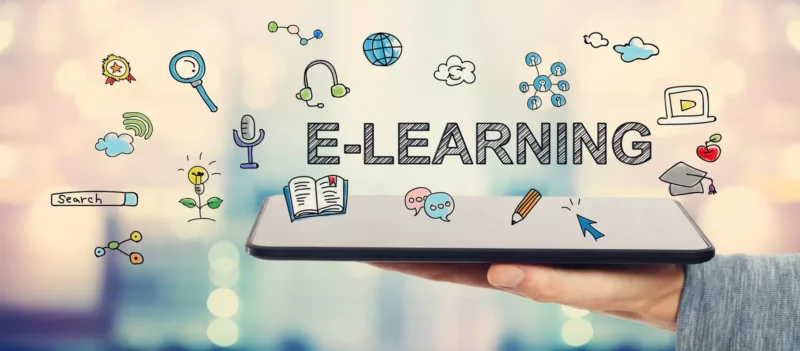E-learning, or electronic learning, is a method of delivering education and training using electronic media such as the Internet, computers, or mobile devices. E-learning can be used to deliver a wide range of educational content, from basic skills training to advanced degrees.
There are many advantages to e-learning. It can be more convenient and flexible than traditional classroom-based learning, as students can access the material at their own pace and time. E-learning can also be more cost-effective, as it eliminates the need for physical classrooms and instructors.
However, there are also some challenges associated with e-learning. One challenge is that it can be difficult to create high-quality e-learning materials. Another challenge is that e-learning can be isolating for students, as they may not have the same opportunities for social interaction as they would in a traditional classroom setting.
Despite the challenges, e-learning is a growing trend in education. It is estimated that by 2025, more than half of all college courses will be delivered online. E-learning is also becoming increasingly popular for professional development and training.
Here are some of the benefits of e-learning:
- Convenience: E-learning can be accessed from anywhere with an internet connection, so students can learn at their own pace and time.
- Flexibility: E-learning can be tailored to individual learning styles and needs.
- Cost-effectiveness: E-learning can save money on travel, lodging, and other costs associated with traditional classroom-based learning.
- Accessibility: E-learning can be made accessible to people with disabilities.
Here are some of the challenges of e-learning:
- Quality: E-learning materials can be of varying quality, so it is important to choose a reputable provider.
- Isolation: E-learning can be isolating for students, so it is important to provide opportunities for social interaction.
- Technology: E-learning requires access to technology, which can be a challenge for some students.
- Motivation: E-learning can be less motivating than traditional classroom-based learning, so it is important to provide students with incentives to complete the course.
Overall, e-learning is a valuable tool that can be used to deliver high-quality education and training. However, it is important to be aware of the challenges associated with e-learning and to take steps to mitigate them.
Here are some tips for successful e-learning:
- Choose a reputable provider with high-quality e-learning materials.
- Make sure you have access to the technology you need to complete the course.
- Set aside time each day to work on the course.
- Find a study buddy or join an online discussion group to stay motivated.
- Take advantage of all the resources available to you, such as online forums, chat rooms, and email.
- Don’t be afraid to ask for help if you get stuck.
With a little planning and effort, you can succeed in e-learning.

